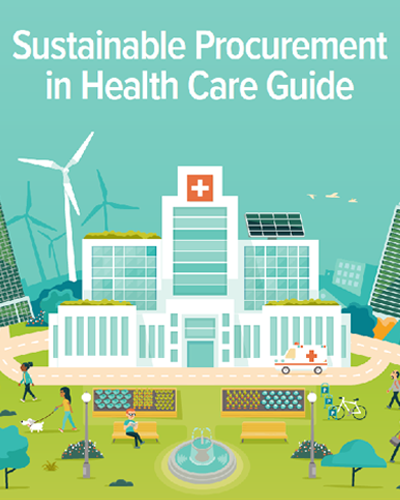Victoria’s New Environmental Protection Laws and proposed final subordinate legislation came into effect on the 1 July 2021.
The General Environmental duty (GED) is a centrepiece of the new laws and applies to all Victorians.
Health is, in part, dependent on the natural and built environments. Due to the nature of the services they provide hospitals use significant amounts of energy and water and generate large volumes of waste. Victorian public hospitals and health services are responsible for a quarter of the government’s reported carbon emissions from stationary energy – 834,962 tonnes in 2017–18 alone.
Some of the strategies healthcare facilities can implement
Reducing the amount of waste at source
- Choosing products that generate less waste: less wrapping material, for example.
- Choosing suppliers who take back empty containers for refilling (cleaning products); returning gas cylinders to the supplier for refilling. (Please follow Work Safe Victoria on chemical handling requirements. Speak with your WHS (OH&S) representative)
- Preventing wastage: in the course of care, for example, or of cleaning activities.
- Choosing equipment that can be reused such as tableware that can be washed rather than disposable tableware.
Stock management
- Centralised purchasing.
- Chemical and pharmaceutical stock management aiming to avoid a build-up of expired or unused items: “first-in / first-out” stock management, expiry date monitoring.
- Choice of suppliers according to how promptly they deliver small quantities and whether unused goods can be returned.
- Healthcare waste includes a large component of general waste and a smaller proportion of hazardous waste.
Several plastic types from hospitals can be recycled relatively easily, including PVC plastic. Some manufacturers in Melbourne are working with hospitals to convert PVC plastic from IV bags, face masks and oxygen tubes into agricultural pipes and children’s play equipment. More than 130 hospitals in Australia and New Zealand are involved.
All recycling efforts require collaboration between clinical staff, infection prevention, environmental services, and recyclers.
Acting Together for Environmental Health
Sustainable Procurement Guide
A ground breaking new guide, featuring stories from 25 healthcare organizations around the globe, offers a roadmap to develop a sustainable purchasing strategy that prioritises community and environmental health and safety while reducing costs.




